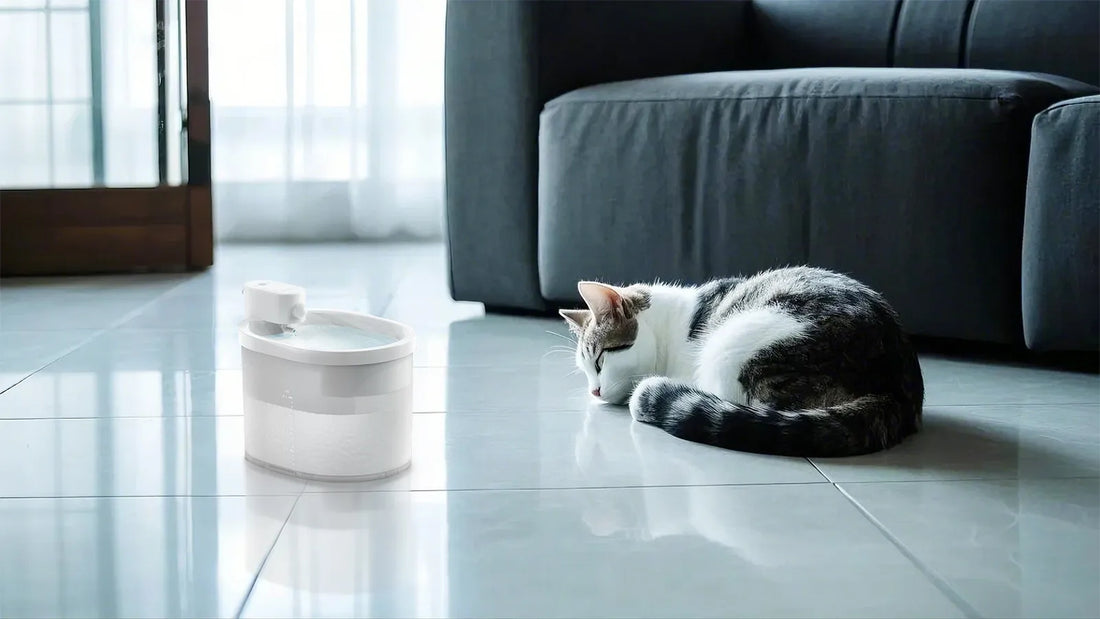When your cat stops eating or drinking and appears very weak, it can be a deeply concerning situation for any pet owner. Cats are known for their independence, but sudden changes in their behavior, especially regarding food and water intake, can signal serious health issues. Understanding the potential causes and knowing how to respond can make all the difference in ensuring your cat's recovery.
Common Causes of Loss of Appetite and Weakness in Cats
There are numerous reasons why your cat might stop eating or drinking and become lethargic. Some of the most common causes include:
- Illness or Infection: Cats are prone to various illnesses, such as kidney disease, liver problems, or infections, which can lead to a loss of appetite and weakness.
- Dental Issues: Painful dental conditions, such as gum disease or broken teeth, can make eating uncomfortable for your cat.
- Stress or Anxiety: Changes in the environment, such as moving to a new home or the introduction of a new pet, can cause stress and reduce your cat's desire to eat.
- Parasites: Internal parasites, like worms, can drain your cat's energy and appetite.
- Poisoning: Ingesting toxic substances, such as certain plants or chemicals, can lead to severe health issues.
Recognizing the Signs of a Serious Problem
It's crucial to monitor your cat closely if they stop eating or drinking. Look for additional symptoms that may indicate a more severe issue, such as:
- Vomiting or diarrhea
- Weight loss
- Dehydration (check for dry gums or sunken eyes)
- Lethargy or lack of movement
- Changes in urination or defecation habits
If you notice any of these signs, it's essential to seek veterinary care immediately. Early intervention can prevent complications and improve your cat's chances of recovery.
What to Do If Your Cat Is Not Eating or Drinking
If your cat is not eating or drinking and appears very weak, take the following steps:
- Assess the Situation: Try to identify any recent changes in your cat's environment or routine that might be causing stress or discomfort.
- Offer Tempting Foods: Sometimes, offering a different type of food, such as wet food or a favorite treat, can encourage your cat to eat.
- Ensure Hydration: If your cat is not drinking, try offering water from a clean bowl or using a syringe to provide small amounts of water.
- Create a Comfortable Environment: Make sure your cat has a quiet, comfortable space to rest and recover.
- Seek Veterinary Care: If your cat's condition does not improve within 24 hours, or if you notice any worsening symptoms, contact your veterinarian immediately.
Preventing Future Issues
To help prevent your cat from experiencing a loss of appetite and weakness in the future, consider the following tips:
- Regular Veterinary Check-ups: Routine visits to the vet can help catch potential health issues early.
- Balanced Diet: Provide a balanced diet that meets your cat's nutritional needs.
- Stress Reduction: Minimize changes in your cat's environment and provide plenty of mental and physical stimulation.
- Parasite Prevention: Use preventative treatments to protect your cat from internal and external parasites.
- Safe Environment: Keep toxic substances out of reach and ensure your home is safe for your cat.
Seeing your cat not eating or drinking and appearing very weak can be a distressing experience, but with prompt action and proper care, you can help your feline friend recover. Always trust your instincts as a pet owner and seek professional advice when needed. Your cat's health and well-being are worth every effort.













